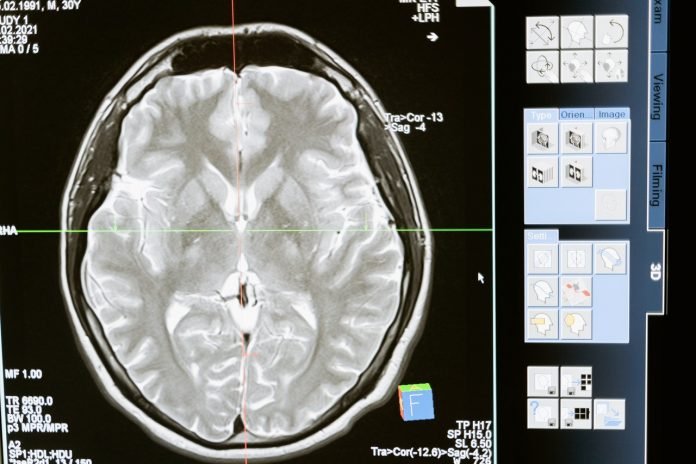
For more than 20 years, scientists have known that people with hypertension, diabetes, high cholesterol, or obesity have a higher likelihood of developing Alzheimer’s disease.
The conditions can all affect the brain, damaging blood vessels and leading to strokes.
But the connection between vascular disease in the brain and Alzheimer’s has remained unexplained despite the intense efforts of researchers.
Now scientists from Columbia University found a possible mechanism.
They found that a gene called FMNL2 links cerebrovascular disease and Alzheimer’s disease.
The finding suggests changes in FMNL2 activity caused by cerebrovascular disease prevent the efficient clearance of toxic proteins from the brain, eventually leading to Alzheimer’s disease.
It could lead to a way to prevent Alzheimer’s in people with high blood pressure, diabetes, obesity, or heart disease.
The research is published in Acta Neuropathologica and was conducted by Richard Mayeux et al.
In the study, the team found FMNL2 in a genome-wide hunt designed to uncover genes linked to both vascular risk factors and Alzheimer’s disease.
The search involved five groups of patients representing different ethnic groups. One gene, FMNL2, stood out during the analysis.
The blood-brain barrier is a semi-permeable, highly controlled border between capillaries and brain tissue that serves as a defense against disease-causing pathogens and toxins in the blood.
Astrocytes, a specialized type of brain cell, compose and maintain the structure of the blood-brain barrier by forming a protective sheath around the blood vessel.
This astrocyte sheath needs to loosen for the clearance of toxic amyloid—the aggregates of proteins that accumulate in the brain and lead to Alzheimer’s disease.
The team found when they blocked the function of FMNL2, they could prevent the clearance of amyloid from the mice brain.
The same process may also occur in the human brain. The researchers studied postmortem human brains and found increased expression of FMNL2 in people with Alzheimer’s disease.
Based on these findings, the researchers say that FMNL2 opens the blood-brain-barrier—by controlling its astrocytes—and promotes the clearance of extracellular aggregates from the brain.
And that cerebrovascular disease, by interacting with FMNL2, reduces the clearance of amyloid in the brain.
If you care about Alzheimer’s disease, please read studies about a new way to prevent Alzheimer’s disease, and medical cannabis can reduce this brain disorder.
For more information about brain health, please see recent studies about 13 things your doctor can check to help protect brain health, and results showing new drug for Alzheimer’s disease prevention is safe and effective.
Copyright © 2022 Knowridge Science Report. All rights reserved.



